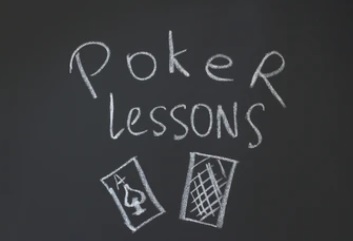
Contents
At the time of this writing, England has just beaten Ecuador 1-0 in the soccer World Cup to progress to the quarterfinals. It was a scrappy game, in which England was on the better side but was unable to really put the game away. The headlines in the English sports pages this morning were mostly negative. “A lacklustre team performance against an unconvincing Ecuador”, claimed one major website, with others carrying similar slants. (For those of you who aren’t soccer fans, bear with me, I am going somewhere with this).
Thinking back to the game makes me realise what a thin line there is between success and failure or, in this instance, a ‘good’ performance and a ‘bad’ performance. If England had taken more of their chances and walked away 2-0 or 3-0 winners, then no doubt the press would have been full of praise for the side, claiming that we were finally fulfilling our potential after a disappointing start to the tournament. They talk about a lacklustre performance, but what they really mean is a lacklustre result.
This is because sports journalists are generally results-orientated and very quick to make sweeping judgements with hindsight. If England had put in a similar performance, but scored one more goal and won 2-0 would that have meant their performance was any better? Scoring one goal is usually the result a piece of individual skill, a defensive error or, more often than players will admit, luck. A ball bouncing in the right direction, a deflection wrong-footing the goalkeeper or a shot falling one inch inside the post rather than one inch outside.
Now 24 hours after the England game I am back at the poker tables. After playing 2,000 hands today, I have recorded a win of 43 big bets. I could be happy with this session because I won more than what my long-term win rate indicates I should win on average per day. But upon closer inspection how close was this good day to being an average or even bad day?
On one hand I won a 21 big bet pot when I hit my flush on the river against three opponents.
On another hand I won a 19 big bet pot where my AA made a set on the river to beat a smaller set.
Don’t Focus on Just Results
That’s 40 big bets won on two hands that were, when it came down to it, lucky. In both hands I was behind on the turn and drew out on the river. You could argue that in the first hand I wasn’t lucky but chasing a legitimate draw, but the fact remains that there were 9 cards that would win me the hand and 37 that wouldn’t. Most of the time I will lose this hand. In fact, if you take these two hands in isolation and play them out one after the other from the turn, most of the time I will lose both of them. If I had lost both of them then that would be almost all my profit for the day erased. All the money I made today was basically from two hands where I hit a lucky river card. Two little pieces of luck turned a dreary break-even day into a satisfying winner.
Of course we could look at it the other way. What if instead of isolating the hands where I was lucky, I look at those where I was unlucky. I can find a number of pots of over 10 big bets that I lost because an opponent hit his lucky card on the river. If I had not been unlucky on just a few of these hands, then my decent day would have turned into a great day, maybe a 75 big bet win.
A random turn of a card can turn a good session bad or indeed a bad session good. Just like a random deflection of the ball could have turned England’s 1-0 win into a 2-0 win, or indeed a 1-1 draw. Is it any wonder that the results of winning poker players are so volatile? Most sessions will be good or bad almost entirely on the strength of a few key hands, which fuel swigs far and above what a player’s skill can compensate for.
Mentality of a Winner
This is all pretty depressing reading for an aspiring poker player who wants to make money at the game. Every time they sit down at the table, their fortunes will be determined largely by luck. 40% of the time, probably more, they are going to lose no matter what they do. How can we ever be happy with a good session when, in all likelihood, our skill played little part in the win? Or how can we learn from our bad sessions when we may not have done anything wrong?
The answer is simple, we can’t. But to be more specific, the answer is irrelevant because we are asking the wrong question. If you are trying to learn anything from the results of individual sessions then you are chasing rainbows. If you are serious about being a good poker player then what matters is not the results of sessions, it’s not even the results of hands. It’s the individual decisions that make up each hand. All we can do as poker players is make the best possible decisions:
It means making that value bet, knowing there is a reasonable chance you are behind.
It means folding, even though you acknowledge that your opponent might be bluffing.
It means raising pre-flop when you figure to have a pot equity edge, even though your hand could be worthless on the flop.
It means making that bluff that nine times out of ten will not work
Little Things, Correct Decisions
Poker is just one long chain of decisions that will have little impact individually. What separates the good players from the average players is their ability to make more good decisions over the long term. The best player in the world will still have sessions, weeks or maybe even months where things don’t go well for them, but that is not important. The important thing is that they get the little things right, because in the long term these little things add up! A few good value bets might turn that 30 big bet loss into a 28 big bet loss. Making some good folds to turn check raises might turn a 10 big bet loss into an 8 big bet loss, even though on one occasion you actually folded a winner.
A couple of big bets here, a couple of big bets there, before you know it you are talking about hundreds of big bets, figures that make a real difference to your bottom line in the long term. Even a very strong limit player will only make 2-3 big bets per 100 hands. So all you have to do is make a few better decisions over the course of a session to turn yourself from a marginal winner or break-even player to a significant winner.
These little mistakes occur everywhere. The important thing to remember is that a dollar is a dollar no matter how it is earned. Making that extra big bet when you are already up 300 big bets is just as important as winning that one big bet that gets you back to even after a tough session. Psychologically they are worlds apart, but in real terms they are identical and must be treated as such. There is no such thing as a mistake that doesn’t matter. Every single one is preventing you from achieving the results you desire in the long term.
Hand Examples
Let’s look at two hands:
Hand 1
You hold Kd Td on a board of Th 8c 8h 5h and there are 6 big bets in the pot. You bet and are raised by your lone opponent. From the board, the betting so far and what you know about the player, you estimate that there is an 85% chance you are behind or will be by the river. You call down and he shows the flush.
Hand 2
You hold Kc Ks on a final board of Kd Js 9d Jh 9c and there are 12 big bets in the pot. Your opponent bets, you raise, he re-raises. From the betting and what you know about the player, you estimate that there is a 10% chance that he holds quads. You just call and he shows AJ.
First of all forget the results of the hands for a moment. In both hands the player made a mistake, but which was the worst mistake? Hopefully you realise that the mistake in hand 2 is, and what’s more it’s not even close. Without boring you with the math, not folding the turn in hand 1 is a 0.2 big bet mistake, while not capping the river in hand 2 is a 0.8 big bet mistake. The mistake in hand 2 is four times as costly as the mistake in hand 1.
But most players will beat themselves up more over the mistake in hand 1. The reason for this is that in hand 2 they have just won a huge pot and are mentally patting themselves on the back. They may wish they had capped the river, but it certainly won’t be bothering them too much. However, in hand 1 they have just been outdrawn in a decent sized pot and what’s more they have just spent 2 big bets to confirm what they already ‘knew’. In effect, their mistake compounds their misery.
In hand 1 you are right to be disappointed at yourself for calling down, but in hand 2 you should be fuming at your planet-sized error! Of course it will get lost in the session results. Maybe you were having a good session and it just meant that you won 33 big bets instead of 34, but those are the little things that define our success at the poker table. You have to care about the little things, because they are the only things you have control over.
A Game of Inches
I will leave you with a quote from the movie Any Given Sunday. It is a speech given by the head coach to his team just before a big game. Obviously he is talking about football, but he might as well have been talking about poker. If you want something to cut out and stick to your monitor then you could do a lot worse than this.
“You find out life’s this game of inches, so is football. Because in either game – life or football – the margin for error is so small. I mean one half a step too late or too early and you don’t quite make it. One half second too slow, too fast and you don’t quite catch it. The inches we need are everywhere around us. They’re in every break of the game, every minute, every second. On this team we fight for that inch. On this team we tear ourselves and everyone else around us to pieces for that inch. We claw with our fingernails for that inch. Because we know when add up all those inches, that’s gonna make the f***ing difference between winning and losing! Between living and dying!”
Make sure that when you are at the poker table then you are worrying not about the big things like your session result but about the little things, for it is these little things that will ensure your long-term success.
Keep fighting for those inches!
Leave a Review
Submit your review | |





